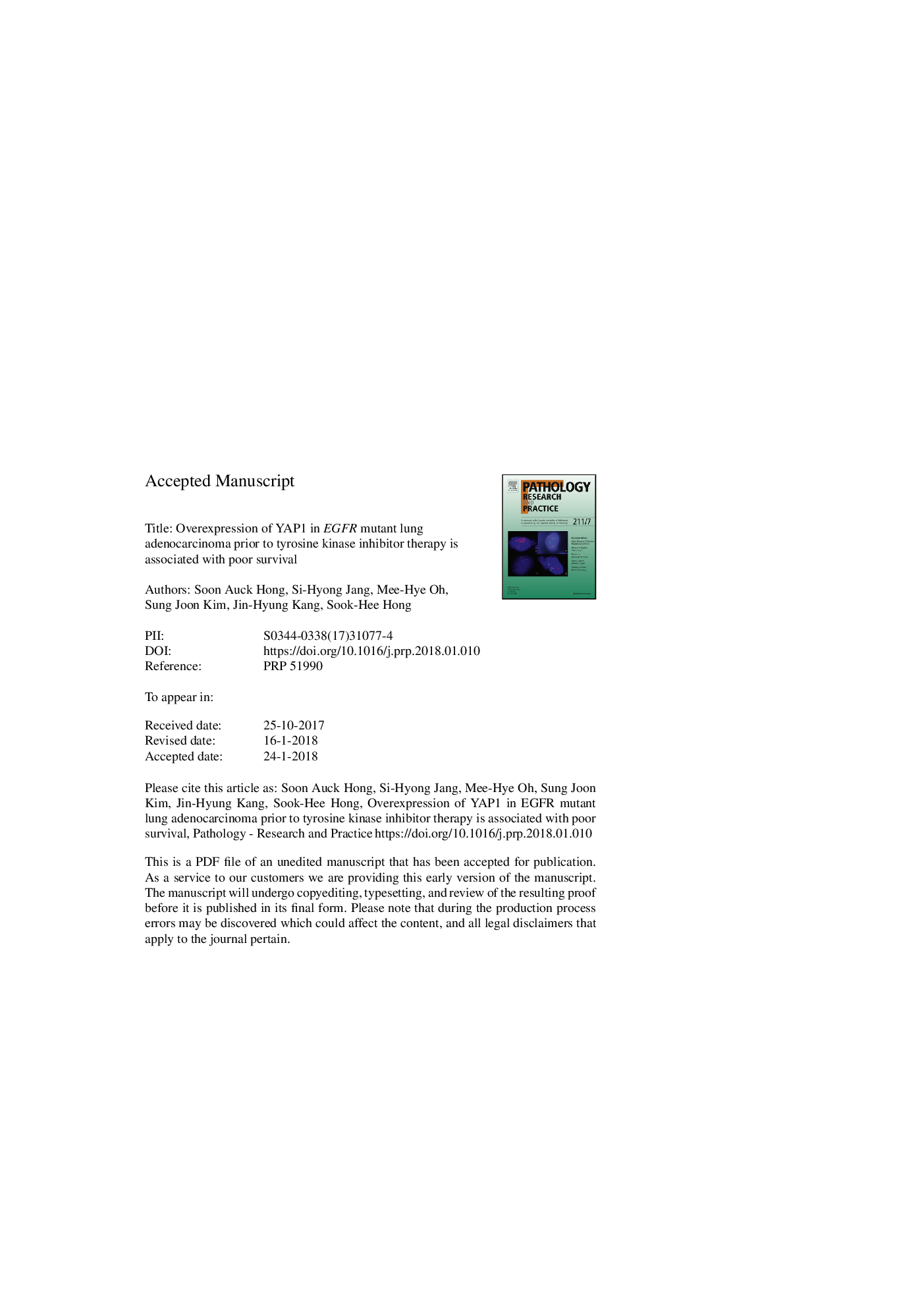| Article ID | Journal | Published Year | Pages | File Type |
|---|---|---|---|---|
| 8458163 | Pathology - Research and Practice | 2018 | 28 Pages |
Abstract
EGFR tyrosine kinase inhibitor (EGFR TKI) is approved as first-line treatment for advanced-stage EGFR mutant lung adenocarcinoma (LADC). Yes-associated protein 1 (YAP1), a main effector of the Hippo pathway, is associated with adverse prognosis and disruption of EGFR TKI modulation of non-small cell lung cancer. In this study, we demonstrated a prognostic role of YAP1 in EGFR mutant LADC and efficacy of EGFR TKI therapy. A total of 63 patients, including 41 with paired lung cancer specimens before and after EGFR TKI therapy and 22 with non-paired lung cancer specimens prior to EGFR TKI, were enrolled for examination. Expression of YAP1 protein was evaluated using immunohistochemistry. Fifteen paired cases (36.6%) with high nuclear YAP1 expression were detected in the pre-EGFR TKI LADC group and 21 paired cases (52.5%) after treatment with EGFR TKI. Nuclear YAP1 expression was significantly upregulated after EGFR TKI therapy (Pâ¯=â¯.002). Fifteen paired cases with high nuclear YAP1 expression before EGFR TKI LADCs showed poorer overall survival (OS) (Pâ¯=â¯.023) and progression-free survival (PFS) (Pâ¯=â¯.041). Among the 63 patients under study, those with high nuclear YAP1 expression before EGFR TKI showed shorter OS (Pâ¯=â¯.038) and PFS (Pâ¯<â¯.001). High nuclear YAP1 expression in cases with acquired EGFR exon 20 T790â¯M mutant LADCs showed poorer OS (Pâ¯<â¯.001). We demonstrated that YAP1 burden before clinical application of EGFR TKI plays a crucial role in prognosis of EGFR mutant LADC treated using EGFR TKI.
Related Topics
Life Sciences
Biochemistry, Genetics and Molecular Biology
Cancer Research
Authors
Soon Auck Hong, Si-Hyong Jang, Mee-Hye Oh, Sung Joon Kim, Jin-Hyung Kang, Sook-Hee Hong,
